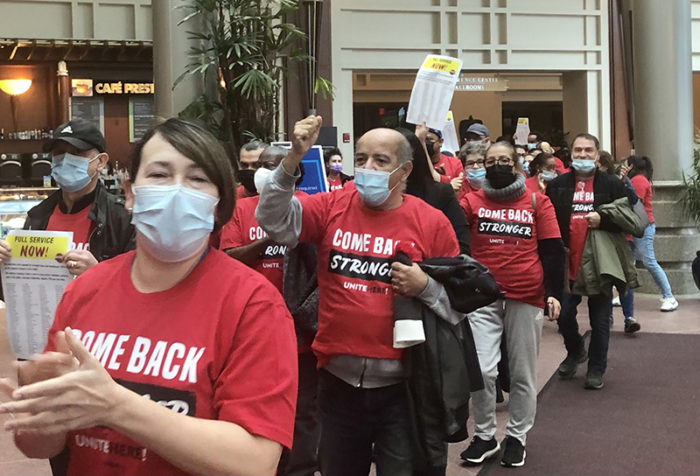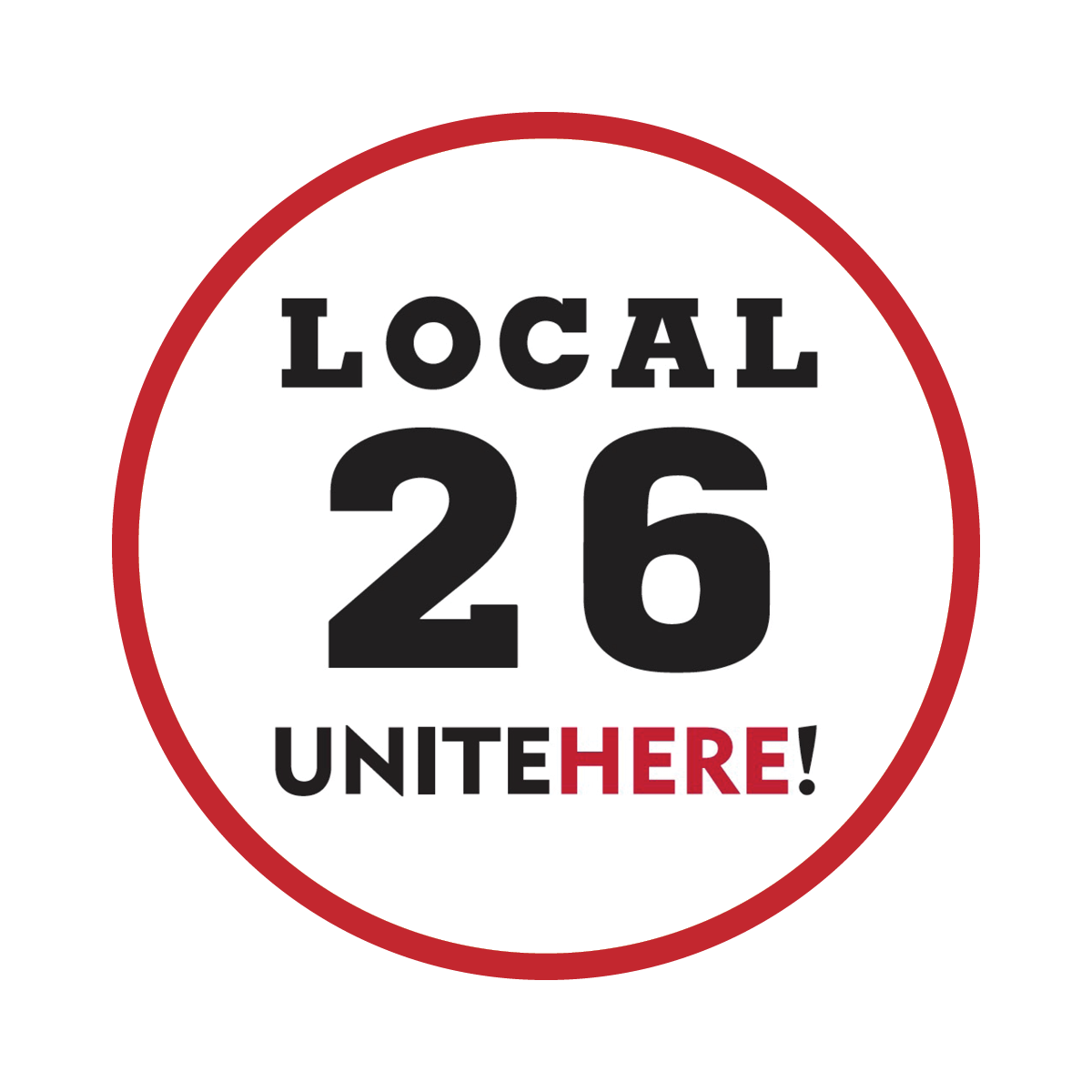As Workers Rise Up During “Striketober,” 10,000 Hospitality Workers March, Picket, Vote to Unionize, and More in Fight for Good Jobs
After extraordinary pandemic hardships, hospitality workers in 29 cities across U.S. and Canada say it’s time to “Come Back Stronger” with variety of events on October 28
 NEW YORK – After months of lay-offs and hardships, over 8,000 UNITE HERE Hospitality Union workers across the U.S. and Canada are demanding better jobs in a variety of events on October 28 – including marches, pickets, rallies, a strike vote, a unionization vote, as well as internal events such as meetings with management. Workers’ renewed militancy has made headlines during so-called “Striketober,” and hospitality workers are fighting for a recovery with good jobs under the banner “Come Back Stronger.”
NEW YORK – After months of lay-offs and hardships, over 8,000 UNITE HERE Hospitality Union workers across the U.S. and Canada are demanding better jobs in a variety of events on October 28 – including marches, pickets, rallies, a strike vote, a unionization vote, as well as internal events such as meetings with management. Workers’ renewed militancy has made headlines during so-called “Striketober,” and hospitality workers are fighting for a recovery with good jobs under the banner “Come Back Stronger.”
At the peak of the shut-down, 98% of the union’s members in hospitality were out of work, but the union has been a model of resiliency, fighting to restore good union jobs in hospitality and unionize new industries. Today, many hospitality workers say their jobs haven’t come back even as business rebounds and employers complain of a labor shortage. In hotels for instance, companies like Hilton have announced new policies automatically opting guests out of daily housekeeping. UNITE HERE estimates that ending daily housekeeping industrywide would eliminate up to 39 percent of all U.S. hotel housekeeping jobs and cost housekeepers $4.8 billion in annual lost wages.
But today’s events in cities across the United States and Canada show housekeepers and other working people in hospitality determined to make a comeback.
“The hotel industry wants to go back to full occupancy without ever bringing back the full workforce, but we are fighting to stop them,” said Yolanda Chen, a housekeeper for five years at the Hilton Union Square in San Francisco, where hundreds of hotel workers will march on October 28. “Over the past few months, Hilton has only called me back to work three times, and I cannot find a job with the same wages and health care that my coworkers and I have won through many years of organizing. We want to get our jobs back so our families can recover from the pandemic.” Read our report, “Playing Dirty,” to learn more.
Meanwhile, workers at HelloFresh – America’s #1 meal kit company – are voting on forming the booming meal kit industry’s first-ever union. The elections come with public approval for unions at record highs. While meal kit orders exploded and HelloFresh’s US revenues doubled last year, workers endured a COVID outbreak, safety issues, and poverty wages. Today, 400 meal kit workers at HelloFresh’s facility in Aurora, CO begin voting on whether to join UNITE HERE, while another 770 workers in Richmond, CO will soon vote on the same question.
“For HelloFresh, the pandemic was a business opportunity, but for us workers, it’s been a nightmare,” said Yesenia Bustos, who works in shipping and receiving at HelloFresh in Aurora, CO. “I’m voting for the union because we’re under so much pressure to make the meal kits, workers are constantly being injured in our kitchen, and my wages aren’t enough to support my family. These are the jobs that have been created by COVID, and they should be good jobs.”
“Workers are fed up with bad jobs and unsafe working conditions, and now they’re seizing the moment to come back stronger in an economy that has favored too few for too long,” says D. Taylor, International President of UNITE HERE. “Every time there’s a crisis, the hospitality industry cuts jobs to boost profits, but we are fighting for a recovery where no one gets left behind. We are the Comeback Union, and we are determined to fight for one another, to bring the good jobs back and grow the union movement.
Workers and union leaders, including President D. Taylor, are available for interview. Please contact Ted Waechter at [email protected] and MJ Leira at [email protected] to coordinate.
###
UNITE HERE is the hospitality workers’ union in the U.S. and Canada, representing over 300,000 workers in hotels, gaming, restaurants and food service, airports, and more. Ninety-eight percent of its members were laid off at the start of the COVID-19 pandemic, and sixty percent remain out of work today.

